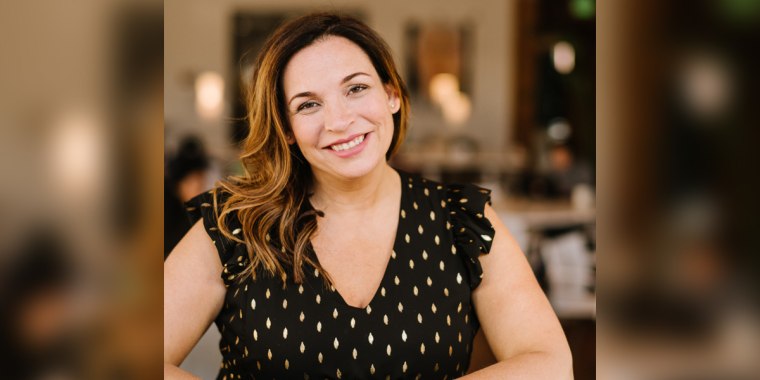Two months into COVID-19 in America, and we’ve gained a new appreciation for the dedication and bravery of nurses, caregivers, grocery clerks, and garment workers sewing lifesaving protective equipment.
And while these heroes and our nation’s health are on the forefront of our minds, many of us have begun to ask: When can we return to normal? But here’s the glitch:
The old “normal” didn’t work for women, and it didn’t work for families. Our system is broken. And it’s past time we acknowledge the basic truths of gender inequity - and do something about it.
For starters, how about the state of equal pay for equal work for the women who are performing essential jobs?
Women still earn on average just 82 cents for every dollar men make, with women of color faring far worse. In fact, African-American women still earn 62 cents on the dollar and Latinx women only 54 cents on the dollar. For Equal Pay Day a few weeks ago, New York Gov. Andrew Cuomo said it best when he tweeted:
“Never has it been more urgent to close the gender pay gap. Women are on the front lines, risking their health, safety and lives and that of their families in the battle against coronavirus. They deserve equal pay. Period.”
COVID-19 has introduced new pains for families.
The majority of schools and daycare facilities are closed for the duration of the coronavirus crisis, and many nursing homes are encouraging families to take vulnerable loved ones home.
Women healthcare workers (who are still the primary caregivers in most families) are facing an impossible choice between caring for their ICU patients and their aging parents who desperately need a safe place to stay.
If you have a household where both the husband and wife typically work outside the home, they now are working inside the home with no one to care for the kids. And because statistics show that women make less money and are less likely to be promoted at work, many women are feeling they have to choose between financial security or nurturing and homeschooling their kids who are out of the classroom indefinitely. Consider the devil’s choice single moms are having to make, it is frankly grief-inducing.
Recently, New York City Mayor Bill de Blasio said he wants to have a ticker-tape parade for healthcare workers when the pandemic subsides. Over 75 percent of healthcare workers are women, and nearly 5.8 million people have jobs in healthcare that pay less than $30,000 a year.
I have something better we could do for them, besides a ticker-tape parade: Pay them.
Pay women fairly for their work outside the home and finally acknowledge their second, and unpaid, shift at home.
We don’t need more gestures, as well-meaning as they may be. We don’t need more words. We need action.
What can you do to show nurses, nine out of 10 of whom are female, how grateful you are? Level the playing field by building the childcare and elder care infrastructure that already exists in every other industrialized country.
Want to appreciate women? Establish equal pay for equal work as law and hold employers accountable.
Historically, moments of crisis have brought a reckoning - but they’ve also brought out the best in us. The Great Depression led to Social Security, World War II to the United Nations and the GI bill, and the Great Recession to the Affordable Care Act. In fact, it was just after the 1918 Flu Pandemic that women earned the right to vote after a 20-year long campaign.
If these weeks - the earliest moments of a long season, it seems - have shown us anything, it's that our systems of healthcare, childcare, and elder care are really a sequence of individual sacrifices, made mostly by women.
That’s the reckoning.
But what next? What will history remember us for in this era?
Six women ran for president in 2020. Unfortunately, none succeeded. However, the most diverse slate of candidates in American history did shine a light on issues of pay equality, caregiving infrastructure, and growing inequality.
Years ago, I became captivated by the idea of Rosie the Riveter. When called to duty, our grandmothers, our aunts, and our mothers showed up and did the work. They made our schools, hospitals, and factories work. They made church fundraisers, family vacations, and carpools work. They helped the mail move and pushed social justice movements forward - but they were forced to do it backwards, in high heels, and for paltry pay.
I am so proud of what they accomplished, but I want something better and more not just for myself, but for my four young daughters, and for all women.
We can make equal pay for equal work the law of the land. We can demand that nurses and grocery store clerks are paid a living wage - a wage which reflects their outsize contribution and importance to our communities and our society. We can guarantee that every woman has easy access to affordable, high-quality, and reliable childcare and elder care infrastructure.
We can do it.
Amy Nelson is the founder and CEO of The Riveter, a network of community and work spaces built by women, for everyone. A graduate of Emory University and the NYU School of Law, Amy practiced corporate litigation for over a decade in New York City and Seattle. She also served on President Obama's National Finance Committee where she co-chaired Gen44, the under 40 fundraising arm of the campaign. Amy previously worked with President Carter's The Carter Center.
